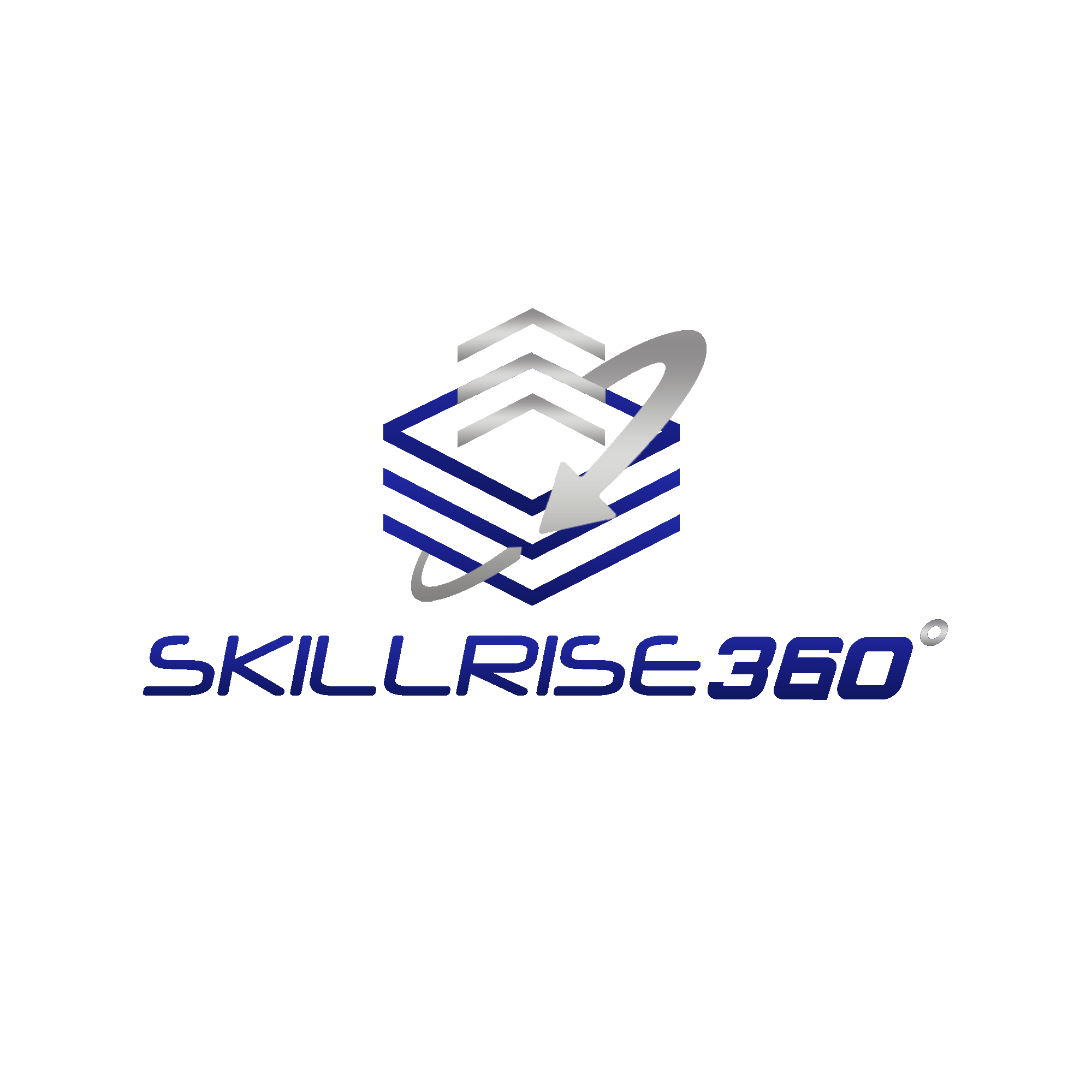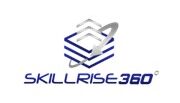In today’s highly competitive job market, attracting and retaining top talent has become one of the most critical priorities for businesses across industries. As companies strive to innovate and grow, they rely on skilled employees who can help them stay ahead of the curve. However, talent acquisition and retention are not just about finding the best candidates; they are also about creating an environment that nurtures their growth and keeps them engaged in the long term.
This article examines the latest talent management trends and strategies that organizations can employ to attract, retain, and develop top talent. We will also highlight how SkillRise360’s Certificate in Human Resource and Talent Management on-demand course can help HR professionals develop the skills necessary to manage talent effectively and build a high-performance workforce.
The Changing Landscape of Talent Management
Talent management is no longer just about hiring and placing the best candidates in roles. It has evolved into a holistic approach encompassing all stages of the employee lifecycle—from recruitment to onboarding, development, performance management, and retention. With the rapid pace of change in the business world, organizations must adapt their talent management strategies to meet the evolving needs of both employees and employers.
Factors such as technological advancements, globalization, and shifts in employee expectations have created both new challenges and opportunities for talent management. Organizations must be agile and proactive to attract people, cultivate a supportive work environment, and foster long-term employee engagement. They need to invest in continuous learning and adaptation to remain competitive and align with employee needs.
Key Talent Management Trends in 2025
As businesses continue to navigate the ever-changing employment landscape, several key trends have emerged, shaping the future of talent management. Understanding these trends is crucial for HR professionals and managers who want to stay ahead of the curve and attract top talent.
Employee Experience Over Employer Experience
While talent management has traditionally focused on the employer’s needs, organizations are now shifting to the employee experience. This shift recognizes that employees are the heart of any business, and a positive, engaging experience throughout the employee lifecycle is essential for attracting and retaining top talent.
Companies must prioritize creating a seamless and fulfilling employee experience from recruitment to performance management and career development. This includes offering opportunities for growth, providing feedback and recognition, and fostering a culture of collaboration and inclusivity. A great employee experience also drives loyalty and enhances organizational culture.
For example, companies are increasingly utilizing employee feedback tools to gain a deeper understanding of their workforce’s needs and concerns. This allows organizations to make data-driven decisions that enhance the employee experience, improve job satisfaction, and increase retention.
Data-Driven Talent Management
As technology advances, companies use data to inform their talent management strategies. Data-driven approaches to talent acquisition, performance management, and employee development can provide valuable insights into workforce trends, performance metrics, and potential talent gaps.
For instance, predictive analytics can help organizations identify candidates most likely to succeed in a particular role and those at risk of leaving. Additionally, performance data can pinpoint areas where employees require further training or support, enabling HR professionals to address skill gaps before they become more significant issues proactively. This data also helps foster personalized career development paths.
By leveraging data, organizations can make more informed and objective decisions about talent management and create personalized development plans that align with both individual and organizational goals.
Remote Work and Flexible Employment Models
The rise of remote work, accelerated by the COVID-19 pandemic, has dramatically transformed how organizations approach talent management. Today’s workforce increasingly values flexibility, and many top candidates seek roles that allow them to work remotely or have flexible hours.
Companies are rethinking their talent management strategies to accommodate remote work and hybrid employment models in response to this shift. This includes offering flexible work arrangements, investing in technology to support virtual collaboration, and reevaluating how performance is measured in a remote or hybrid environment. Technology tools like video conferencing and project management software are now essential for fostering collaboration.
Providing flexible work options has become a critical factor for organizations seeking to attract top talent. A Gartner survey found that 47% of employees are likely to leave their current employer if they are not offered the option to work remotely. Companies that embrace flexible work models will have a competitive edge in attracting and retaining high-caliber employees.
Focus on Employee Well-Being and Mental Health
Employee well-being has recently taken center stage in the field of talent management. Organizations are increasingly recognizing the importance of supporting their employees’ mental, physical, and emotional well-being. Offering wellness programs, mental health resources, and work-life balance initiatives has become a key strategy for attracting and retaining top talent.
In addition to improving employee satisfaction, prioritizing well-being can enhance productivity, decrease absenteeism, and decrease turnover. Employees who feel supported in their well-being are more likely to remain engaged and committed to the organization, contributing to long-term success. Mental health resources, like counseling services, can help employees feel more supported.
Diversity, Equity, and Inclusion (DEI)
Diversity, equity, and inclusion (DEI) have become essential components of talent management. As organizations seek to build high-performance teams, they prioritize diversity in recruitment and create inclusive environments where all employees feel valued and respected.
Research has shown that diverse teams are more innovative and make better decisions, so attracting diverse talent is a top priority for many companies. In addition to attracting diverse candidates, organizations must ensure that their talent management practices promote equity and inclusivity throughout the employee lifecycle.
HR professionals are implementing strategies such as blind recruitment, diversity training, and employee resource groups to foster a more inclusive and equitable workplace. Companies that commit to Diversity, Equity, and Inclusion (DEI) are more likely to attract top talent and build a loyal, engaged workforce.
Talent Management: Strategies for Attracting and Retaining Top Talent
Attracting and retaining top talent requires a multifaceted approach that goes beyond traditional recruitment methods. Organizations must invest in building a strong employer brand, offer competitive compensation packages, and create a culture that promotes employee growth and satisfaction. Below are some key strategies that can help organizations attract and retain top talent:
Strengthening Employer Brand
A strong employer brand is crucial for attracting top talent. Companies with a positive reputation for treating employees well and fostering a supportive work environment are likelier to attract high-caliber candidates. Organizations should emphasize their values, culture, and commitment to employee development to build a strong employer brand.
Organizations can also leverage employee testimonials, social media, and job boards to highlight their unique workplace culture and values. An authentic and compelling employer brand will help differentiate an organization from its competitors and attract top talent.
Offering Competitive Compensation and Benefits
Attracting and retaining top talent often requires offering competitive salaries and benefits. While compensation is not the only factor employees consider when choosing a job, it is a key driver of employee satisfaction and retention.
In addition to competitive salaries, organizations should consider offering a comprehensive benefits package that includes health insurance, retirement savings plans, paid time off, and wellness programs. Top talent also highly values flexible work arrangements and opportunities for career development.
Promoting Career Development and Growth Opportunities
Top talent is often motivated by the opportunity to learn and grow within an organization. Clear career paths, professional development programs, mentorship, and training opportunities can help retain employees and foster long-term loyalty.
Employees with growth opportunities are likelier to stay with an organization and remain engaged in their work. Managers should work with employees to create personalized development plans and provide the necessary resources to help them achieve their career goals.
Creating a Positive Work Environment
A positive and inclusive work environment is essential for employee retention. Organizations should prioritize creating a culture of respect, collaboration, and recognition that values and supports employees. Regular feedback, opportunities for team-building, and employee recognition programs can help foster a positive workplace culture.
A strong organizational culture that aligns with employees’ values will attract top talent and encourage employees to stay and contribute to the organization’s success.
How SkillRise360 Can Help HR Professionals and Managers
At SkillRise360, we offer an on-demand certificate course in human resource and talent management to help HR professionals and managers build the skills necessary to navigate the evolving talent management landscape. This course covers the latest trends and best practices in talent acquisition, employee development, retention strategies, and performance management.
The course includes:
-
Attracting Top Talent: Learn strategies for building a strong employer brand and recruiting high-caliber candidates.
-
Employee Retention Strategies: Learn how to cultivate employee engagement, satisfaction, and loyalty through effective development programs and a positive work environment.
-
Diversity, Equity, and Inclusion: Learn how to effectively implement DEI initiatives that foster a more inclusive and innovative workplace.
-
Performance Management: Gain insights into setting goals, providing feedback, and creating development plans that align with both organizational and employee objectives.
This comprehensive course is designed to fit into your busy schedule, allowing you to learn at your own pace. Upon completion, you will receive a certificate demonstrating your expertise in human resources and talent management.
Conclusion
In a world where talent is a key driver of organizational success, companies must adapt their talent management strategies to attract, develop, and retain top talent. By embracing the latest trends in talent management, such as focusing on the employee experience, using data-driven insights, offering flexible work options, prioritizing well-being, and promoting diversity and inclusion, organizations can build high-performance teams that drive innovation and success.
At SkillRise360, our on-demand Certificate in Human Resource and Talent Management course can help you master the strategies to navigate these trends and effectively manage talent within your organization. Enroll today and enhance your ability to attract and retain top talent.

